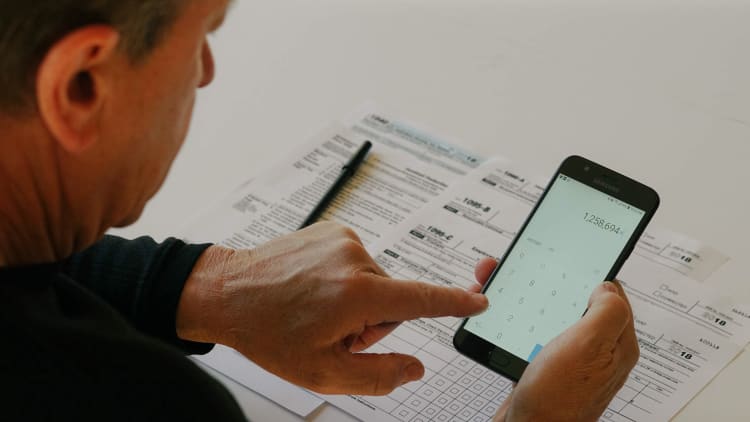Regardless of where you live on this planet, if you're an American, Tax Day is on July 15.
Perhaps nobody feels this as keenly as taxpayers who reside in foreign countries. Seven out of 10 U.S. citizens abroad don't think they should be required to file U.S. taxes, according to a survey by Greenback Expat Tax Services.
The firm polled more than 4,000 American expatriates from March to June 2020.
"It continues to be a thorn in the side for these individuals," said Miranda Pruitt, content strategist for Greenback Expat Tax Services. "It remains something they struggle with, the extra reporting requirements and forms they have to fill out at tax time."
Indeed, a fifth of the participants said they were seriously considering giving up their citizenship in the near term — and close to 4 in 10 of these people said this decision was driven by the burden of filing taxes each year.
In fact, more than 2,900 Americans took the step of renouncing their U.S. citizenship between Jan. 1 and March 31 of this year, according to data from the IRS and Treasury Department.
Taxation based on citizenship

U.S. citizens and resident aliens are required to file income, estate and gift tax returns, as well as pay levies owed, regardless of where they live. Their worldwide income is subject to taxes.
Aside from filing an individual income tax return, Americans abroad have additional requirements.
Let's say you held an interest in or signature authority over at least one foreign account and the aggregate value of your overseas accounts exceeded $10,000 at any time during the year.
In that case, you're required to submit a report of Foreign Bank and Financial Accounts with the Treasury's Financial Crimes Enforcement Network.
This document, known as FBAR, is normally due on April 15. But you get an automatic extension to Oct. 15 if you miss the deadline.
More from Smart Tax Planning:
Uncle Sam is paying 5% interest on tax refunds. It's taxable
Fast rollout of PPP loans raises fraud risk, watchdog says
Treasury, IRS will not delay Tax Day a second time
If you file an FBAR, you may also need to provide Form 8938 to the IRS. This is known as a statement of specified foreign assets.
Whether you're required to file this form will depend on where you live and the foreign asset holdings you have.
Single filers living overseas must file Form 8938 if the total value of their foreign financial assets exceeds $200,000 on the last day of the tax year ($400,000 for spouses who file jointly) or if it exceeds $300,000 at any time during the year ($600,000 for spouses filing jointly).
Taxpayers abroad catch a bit of a break this year: Form 8938 must be filed with their income tax returns, so it's due on July 15, according to the IRS.
Frustration with the U.S.

Tax complexity aside, Americans abroad have also expressed frustration with the U.S. government overall.
Of those who said they would give up their citizenship, close to a quarter said this was driven by "disappointment with the direction of the American government," Greenback's survey found.
More than 8 out of 10 said they disapproved of the way the U.S. government has responded to the coronavirus pandemic.
Citizens abroad plan on mailing in their ballots in this year's presidential election. Eighty-two percent of the participants said they would vote this year, up from 73% in 2016.
"People have an opinion," said David McKeegan, co-founder of Greenback and resident in Costa Rica. "You take some flak as an American overseas for what's going on in the country."






